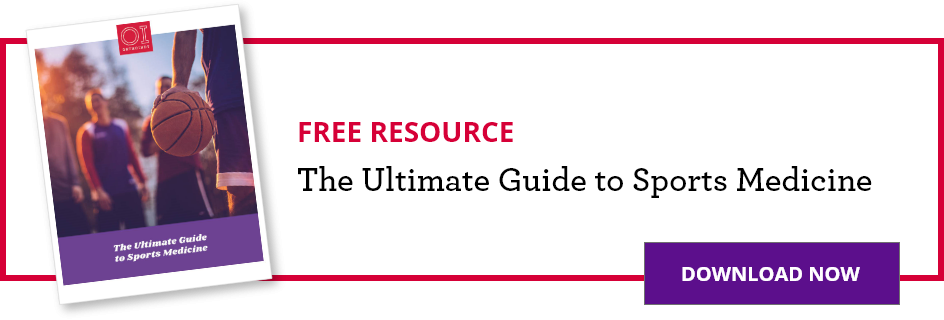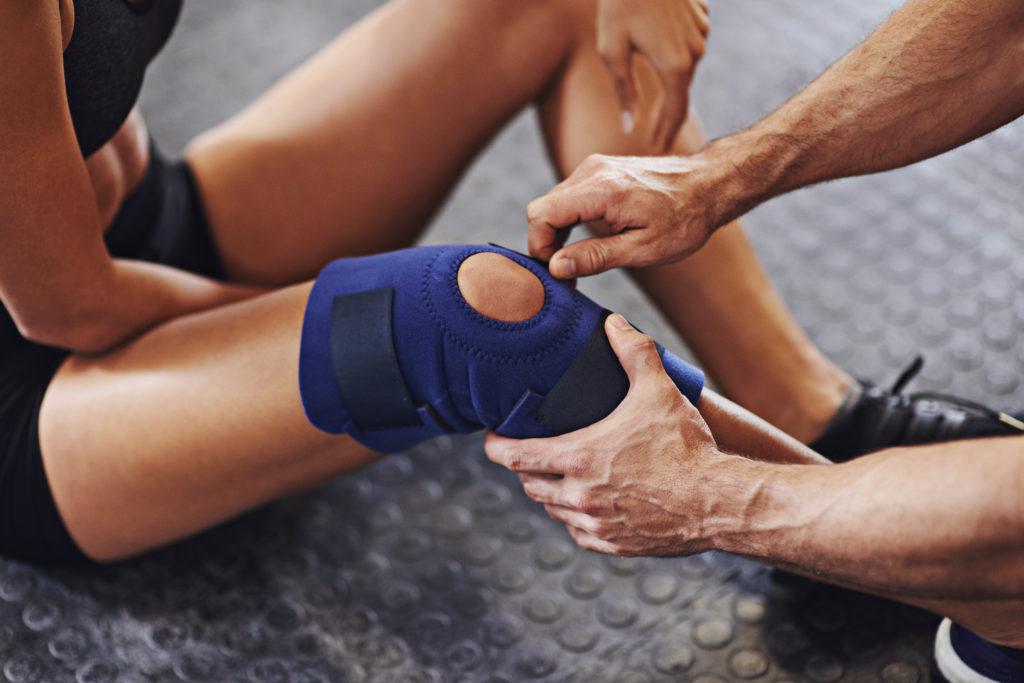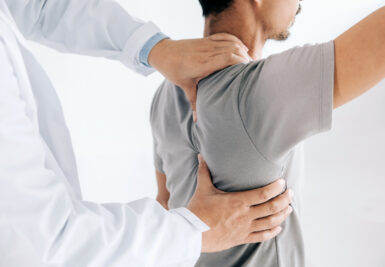This post is part of The Ultimate Guide to Sports Medicine
The ligaments in your knee connect your thighbone to your lower leg bones. Knee ligament sprains and tears are common in athletes and the active person because of the complexity of the knee joint.
A collateral ligament injury occurs when the MCL or LCL is injured. These ligaments are on the inside and outside of the knee.
Knee anatomy
Two bones meet to form your knee joint: your femur (upper leg bone) and tibia (lower leg bone). Your patella (kneecap) sits in front of the joint. Bones are connected to other bones by ligaments.
There are four primary ligaments in your knee: medial collateral ligament (MCL), lateral collateral ligament (LCL), anterior cruciate ligament (ACL) and posterior cruciate ligament (PCL). They act like strong ropes to hold the bones together and keep your knee stable.
Cruciate ligaments are found deep inside your knee joint. They cross each other to form an “X” with the ACL in front and the PCL in back. The cruciate ligaments control the backward and forward shifting motion of your knee.
Collateral ligaments are found on the sides of your knee joint. The MCL is on the inside and the LCL is on the outside. They control the side-to-side motion of your knee.
Injured ligaments are considered “sprains” and are graded on a severity scale:
- Grade 1 Sprains: The ligament is mildly damaged; it has been slightly stretched, but is still able to help keep the knee joint stable.
- Grade 2 Sprains: Stretches the ligament to the point where it becomes loose compared to a normal ligament; often referred to as a “partial tear” of the ligament.
- Grade 3 Sprains: Commonly referred to as a “complete tear” of the ligament; the ligament has been split into two pieces, and the knee joint is unstable.

Cause
- Sudden and unusual knee movement
- Twisting your knee while running or landing from a jump
- A direct blow to the knee
Collateral ligament injury symptoms
- Pain with swelling that occurs quickly after the injury
- Pain at the sides of your knee
- Swelling that makes the knee stiff and causes a limp
- Difficulty walking
- Knee feels unstable
Physician examination
When injuries occur to the collateral ligaments at the same time as an injury to the cruciate ligaments, this is called a combined knee ligament injury. To determine whether you have a combined knee ligament injury, your physician will ask you for a complete history, have you describe your symptoms and how the injury occurred, and conduct a physical examination. An X-ray or MRI may be necessary to confirm the diagnosis and rule out or confirm other problems.
Make an appointment with an OrthoIndy sports medicine specialist
Treatment
Injuries to the MCL or LCL rarely require surgery if they are isolated (occur in the absence of cruciate ligament injury) and the knee has not been damaged in other ways.
Nonsurgical treatment options
- Ice
- Wearing a brace
- Physical therapy
If the injured knee has a collateral ligament injury and also involves one of the cruciate ligaments, surgery may be necessary to repair the collateral ligament.
Recovery
There is a gradual return to daily activity and eventually sports activity, depending on the severity of the injury. Once your range or motion returns and you can walk without a limp, you will slowly begin returning to an active lifestyle. You will likely require physical therapy and may need to continue wearing a brace, depending on the severity of your sprain.
Learn more about sports medicine treatment at OrthoIndy.
Schedule an appointment
Your well-being is important to us. Click the button below or call us to schedule an appointment with one of our orthopedic specialists. If your injury or condition is recent, you can walk right into one of our OrthoIndy Urgent Care locations for immediate care. For rehabilitation and physical therapy, no referral is needed to see one of our physical therapists.





